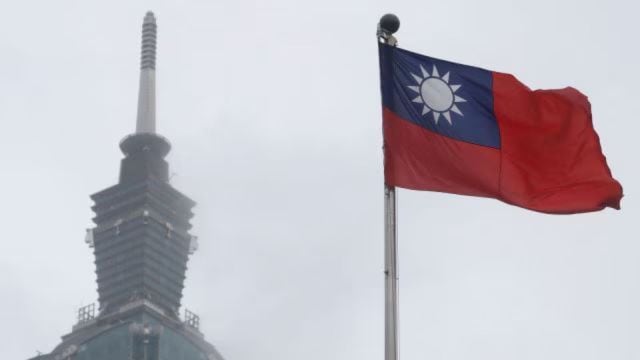
Written by Seshadri Chari and Sumit Kumar
The rise of the Indo-Pacific as a new geopolitical construct has underlined a significant shift in the post-Cold War world order. In this context, several countries, including the United States, have crafted their strategies to realise a free and open Indo-Pacific. Undoubtedly, India and Taiwan have also launched their policies to promote a strong liberal order in the region. Strategic convergence between India and Taiwan on this issue is one of the essential pillars of their bilateral ties. Incidentally, three retired Indian service chiefs visited Taiwan in August 2023 to take part in the Ketagalan Forum to discuss defence and security issues in the Indo-Pacific.
While the genesis of India-Taiwan relations can be traced back to India’s pre-Independence period, the Indian government’s “Look East Policy,” initiated in early 1991, brought the two economies closer. Visa restrictions were loosened and in 1995, the two sides established representative offices in each other’s capitals, namely the Taipei Economic and Cultural Centre in India (TECC) for the ROC (Taiwan) in New Delhi and the India-Taipei Association (ITA) for India in Taipei.
A major positive shift in the relationship has taken place under the leadership of Prime Minister Narendra Modi since 2014. The Indian government’s decision to invite Taiwan’s representative to PM Modi’s swearing-in ceremony in 2014 showed strong political will to strengthen ties with Taiwan. Subsequently, two members of Parliament from the Bharatiya Janata Party (BJP), Meenakshi Lekhi and Rahul Kaswan, virtually attended President Tsai Ing-wen’s second swearing-in ceremony in 2020.
India’s Ministry of External Affairs spokesperson called out China for unilaterally changing the “status quo” in the Taiwan Strait in the aftermath of a visit to Taipei in August 2022, by then–US House Speaker Nancy Pelosi. The Indian government’s decision to honour the Chief Executive Officer and Chairman of Taiwanese technology giant Hon Hai Technology Group (Foxconn), Young Liu, with the Padma Bhushan further underlined the Modi government’s desire to expand ties. India also allowed Taiwan to open a Taipei Economic and Cultural Centre in Mumbai.
These developments have not occurred in a vacuum. There are several reasons for India to double down on its efforts to strengthen ties with Taiwan. While bilateral trade reached $10.6 billion in 2024, with around 200 Taiwanese companies currently operating in different sectors of the Indian market, India aims to benefit from Taiwan’s huge foreign reserves and its expertise in the fields of automobiles, hardware manufacturing, and construction among others. With 90 per cent of the world’s advanced semiconductor production, Taiwan’s role is crucial to India becoming a global hub for electronic manufacturing and design.
It was precisely in this context that a deal was signed between Powerchip Semiconductor Manufacturing Corporation (PSMC) and Tata Electronics to invest $11 billion together to build India’s first semiconductor plant in Gujarat. This move will also help India reduce its dependence on China. India, too, will provide Taiwan with one of the largest markets in the world for its products, helping the latter expand its presence in other South Asian countries. The migration and mobility agreement between India and Taiwan is equally important for improving bilateral trade, people-to-people engagement, and addressing the shortage of the working population in Taiwan.
That said, there is no denying the fact that the two sides are far away from realising their full bilateral potential. India, therefore, should consider making some concrete efforts to institutionalise the informal ties with Taiwan. First, India should encourage members of Parliament and representatives from Indian states to visit Taiwan. This, in turn, will enable the two sides to know each other better, attracting more Taiwanese companies to India. At the same time, India should explore ways and means of signing a free trade agreement with Taiwan.
Second, engagement between the two sides is also at a nascent level. Hence, they should encourage their think tanks to work together in nurturing young Indian and Taiwanese scholars studying bilateral relations. Indian universities should also be encouraged to sign MoUs with Taiwanese universities to promote interaction between their students and faculty through exchange programmes.
Thirdly, beyond strong economic ties, both countries need to identify shared interests and means to achieve them in other areas, including climate change, cybersecurity, space exploration, and global governance. Fourth, India has a strong interest in promoting a free, inclusive, and open Indo-Pacific. After all, tension in the Taiwan Strait will impact the freedom of navigation in the region, through which a significant portion of India’s trade takes place. There are also security interests. Accordingly, New Delhi should work with like-minded countries to reinforce peace in the region.
Fifth, the lack of direct flights continues to hamper greater engagement between the two sides. India should consider connecting New Delhi and Taipei directly. This will not only reduce travel time between the two sides but also boost tourism from Taiwan to India. Sixth, at a time when India has an acute shortage of Mandarin scholars to have a better understanding of China’s policy orientations, Taiwan can prove to be of great importance if more Taiwanese teachers are allowed to teach Mandarin in Indian universities.
Over the past 30 years, New Delhi and Taipei have come a long way in economic, trade, and cultural engagement. But more needs to be done to realise the huge potential of the two sides to build a mutually beneficial relationship in an evolving new world order and in the Indo-Pacific.
Chari is Former Editor of Organiser and Professor Emeritus at Savitribai Phule Pune University. Kumar is Assistant Professor, Department of Political Science, University of Delhi